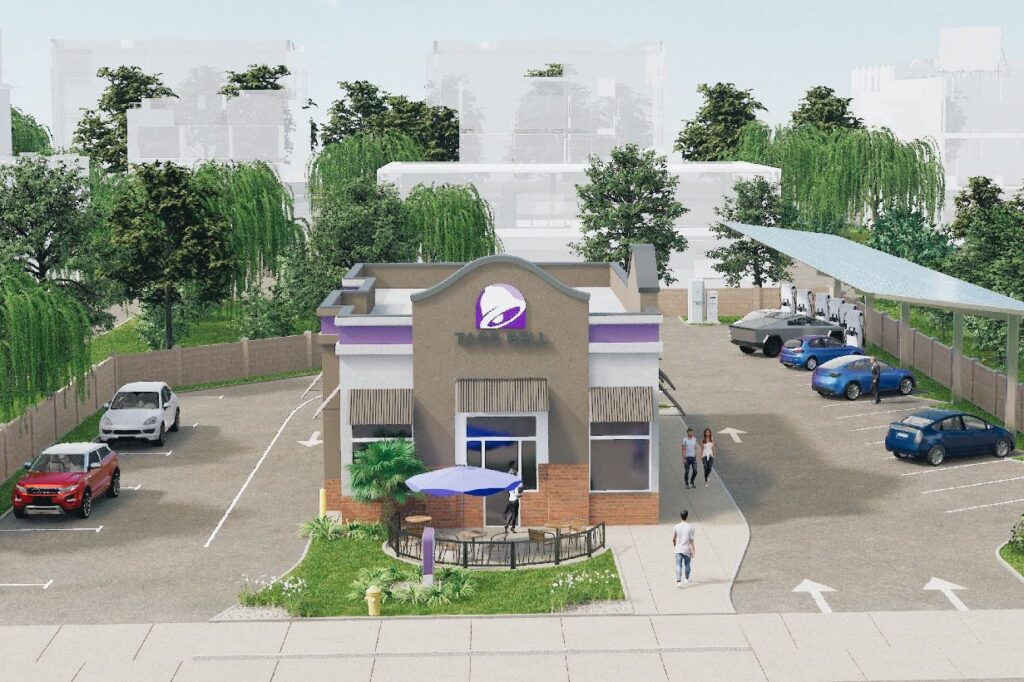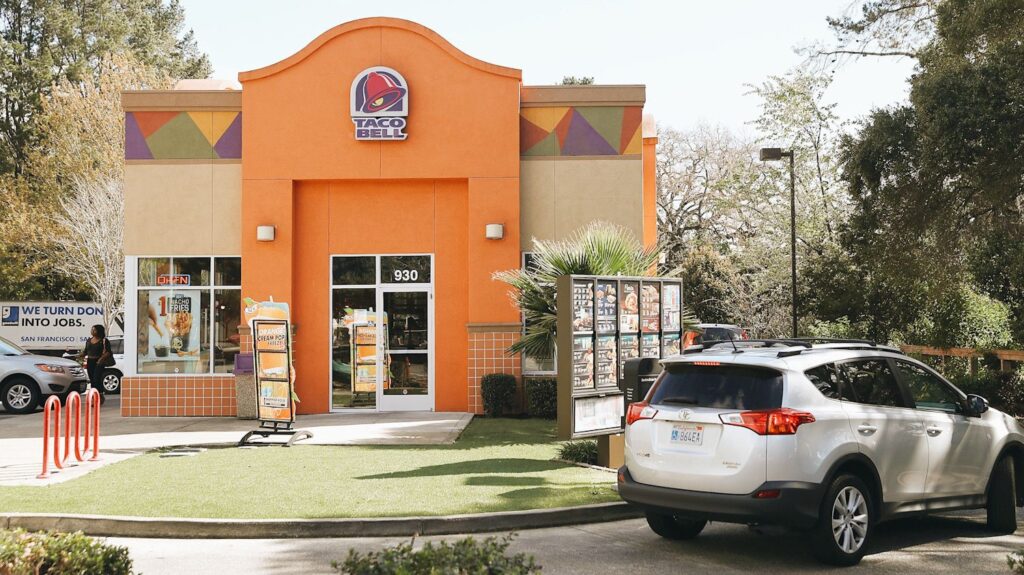Picture this: it’s late at night, you’ve pulled up to the nearest Taco Bell, and you’re sitting in the driver’s seat of your electric car while it charges. No, this isn’t 1993’s Demolition Man. Electric vehicle (EV) fast-chargers are coming to Live Más land (sorry) soon.
Six of these fast-chargers—built by EV charging specialist Tritium and using software by California-based startup ChargeNet—are set to be installed in the parking lot of one of Taco Bell’s San Francisco locations at the end of the month.
The stations will occupy six spots while the integrated solar panels will take up an additional ten. The installed charging stations will be capable of providing about 46 miles of range in 10 minutes. This isn’t bad, considering that the typical fast-charger can add up to 100 miles of range to most electric cars in approximately 35 minutes.

Roadside diners, gas-guzzlers, and the electrification of cars
We’ve been driving gas-guzzling cars for over a century. The widespread embrace of the automobile by Americans undeniably changed everyday life. It gave people more personal freedom, access to new jobs, local governments invested in highway design, and helped pave the way for the “rebellious” teenager. It also sparked the popularity of hamburgers, french fries, and milkshakes. As the automobile industry took off, roadside diners that served this quintessential part of American cuisine blossomed and became part of the popular culture. And naturally, many of these quick-serve restaurants also had gas stations—so travelers could fuel themselves and their cars.
But cars use fossil fuels, one of the key drivers of human-caused climate change. The average passenger vehicle emits 4.6 metric tons of carbon dioxide a year, assuming that it’s driven around 11,500 miles per year. Giving up cars isn’t a realistic option for the majority of people, but a move towards electrification would greatly reduce emissions.
EVs have been around for more than 100 years, but it wasn’t until recently that they’ve experienced a jump in popularity thanks to growing climate consciousness. Sales are at an all-time high and even the “Big Three” American car companies—Ford, Chrysler, and General Motors—are going all-in on gas-free cars. Last August, President Joe Biden announced an ambitious goal to make 50 percent of U.S. passenger cars electric by the end of the decade.
What does this all have to do with charging stations at Taco Bell? In a way, it’s reinventing the roadside diner-gas station combination of yore. The fast-charging stations at that one San Francisco Taco Bell location are thanks to a recent $6.2 million funding round closed by ChargeNet earlier this month. But this is just the start. More than 70 Taco Bell locations plan to add charging stations to their parking lots this year.
Since we’ve entered year three of the pandemic, it makes sense why anyone in this day and age would want to eat in their car instead of getting a table. ChargeNet and Tritium aren’t the first to pursue the idea of converting restaurant parking lots into a place where you can charge your car.
EV fast-charging station company Electrify America plans to open charging stations at 17 Westfield mall locations across the country, starting in Santa Clara. It’s too early to say how this will affect America’s dying mall situation, but customers will be able to have meals ordered from the food court delivered right to their charging location.
Tesla CEO Elon Musk, meanwhile, wants to revive drive-in restaurants, complete with roadside Americana aesthetics. Tesla filed a trademark under restaurant services as Musk looks to bring to life his vision of opening an “old-school drive-in, roller skates & rock restaurant at one of the new Tesla Supercharger locations in Los Angeles.”


